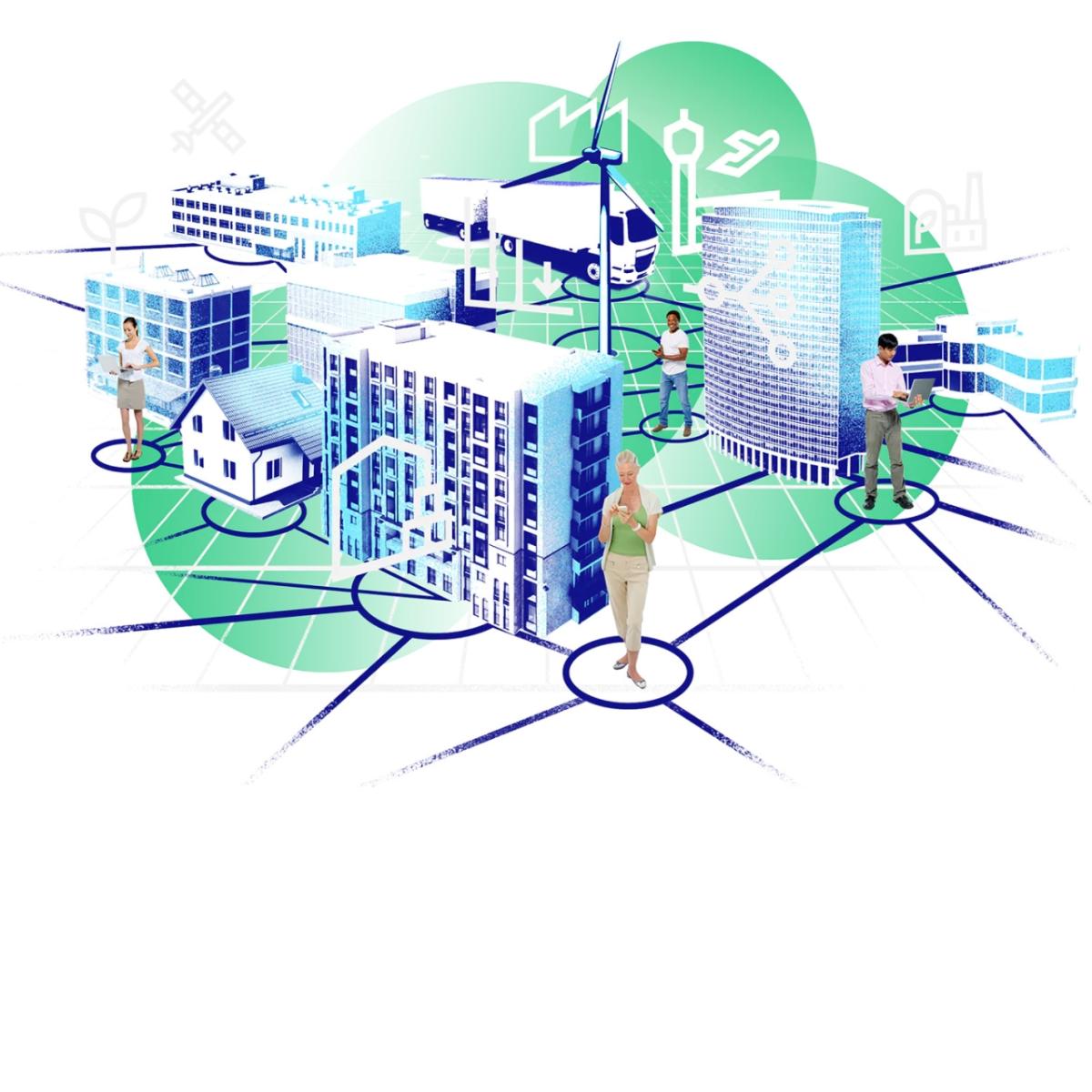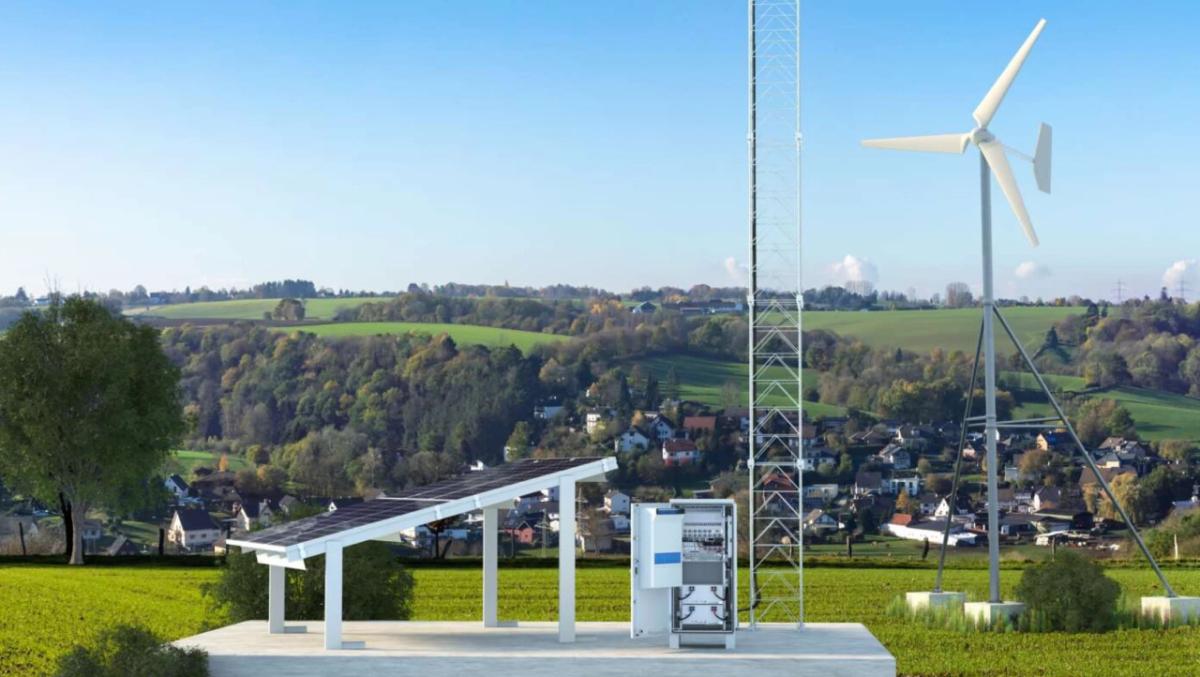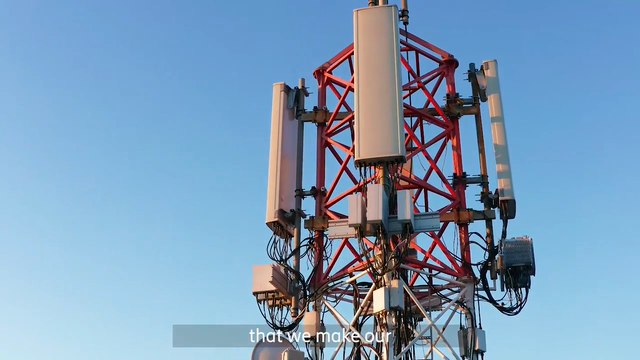Delivering Net Zero - What It Takes in the Telco Industry
Originally published by Ericsson
What?
Taking action to achieve Net Zero right now is more important than ever, as we only have a narrow window of opportunity to keep the increase in temperature within 1.5℃C. The industry has made a commitment to reach net zero by 2050 at the latest.
Why?
The Intergovernmental Panel on Climate Change (IPCC) has warned of ‘a rapidly closing window to secure a liveable future.’ Now is the time to act and realize a Net Zero ambition. No individual party can solve this alone: it requires a collective approach, with tangible and clear actions by all.
How?
The mobile industry can do two things to help address the climate crisis. Firstly, to rapidly decarbonize as a sector – something that Ericsson is supporting via our ambition. Secondly, to help other sectors to reduce their emissions.
The takeaway
The Telco industry is rapidly decarbonizing. Both its technological innovations and collaborative approach are helping other sectors decarbonize too, by generating efficiency gains and enabling new sustainable operational processes.Telcos are reducing carbon emissions from their own operations, their supply chains and emissions as a result of research and innovation and through their ambition to reach Net Zero.In a decisive step towards Net Zero emissions, Deutsche Telekom partnered with Ericsson to bring solar power to commercial mobile broadband sites contributing to more than two-thirds of the site’s total power – even during peak hours.By working together, the Telco industry is driving positive change when it comes to tackling the biggest climate challenges – like supporting the increase in availability of renewable energy.By considering sustainability as a value creator, the sector is developing innovative solutions to some of the world’s most complex climate challenges and is pioneering a sustainable future.
The Intergovernmental Panel on Climate Change (IPCC) is the United Nation’s body for assessing the science related to climate change. Its sixth assessment, published in February 2022, warned of “a rapidly closing window to secure a liveable future.” This report reconfirms that the need for a Net Zero ambition is more prevalent and important than ever.
In 2021, Ericsson formalized its long-term ambition to be Net Zero across its value chain by 2040. To meet this ambition, Ericsson is making progress against its targets in line with the 1.5°C ambition set by the Paris Agreement. To meet these targets, a priority is to reduce and avoid emissions across the value chain as well as to invest in renewable energy.(1)
At the ICT industry event MWC Barcelona 2022, we had the pleasure of speaking with Steven Moore, Head of Climate Action at GSMA, on its ambition for how the telco industry can help realize a Net Zero future.
The GSMA is a global organisation unifying the mobile ecosystem to discover, develop, and deliver innovation foundational to positive business environments and societal change. Its vision is to unlock the full power of connectivity so that people, industry, and society thrive.
Representing mobile operators and organisations across the mobile ecosystem and adjacent industries, the GSMA delivers for its members across three broad pillars: Industry Services and Solutions, Connectivity for Good, and Outreach.
So Steven, what does Net Zero mean for you? Why is immediate action so important?Net Zero means balancing the emissions we put out into the atmosphere, with those that we can pull out. This means moving toward a very different way of doing business, living, and working, and establishing a type of economy that’s completely different to the one that we have at the moment.
Taking action to achieve Net Zero right now is so important, as we only have a narrow window of opportunity to keep the increase in temperature within 1.5ﹾC. That’s imperative, because we have just seen the latest UN report which shows that if we go above this, there are going to be many irreversible changes to our climate, and this will mean huge impacts on us as a civilisation.
"I see a future whereby technology enables us to live more sustainably and more in harmony with nature."
Steven Moore, Head of Climate Action at GSMA
What role does the telco industry have to play in addressing the climate crisis?
The mobile industry can do two things to help address the climate crisis. The first is to rapidly decarbonize as a sector, and that is something that we are supporting through our ambition.
As an industry, this is a commitment that we made back in 2019—to be Net Zero from carbon emissions by 2050 at the latest. If we can do that, then we will have played our part in limiting global heating to 1.5ﹾC.
And many operators now, across the mobile industry, as well as many suppliers, have set targets to rapidly cut carbon emissions by 2030. And we’re not just talking about the carbon emissions from their own operations, but the carbon emissions throughout their whole value chains. So that includes emissions associated with each company’s supply chain and when their customers use their products and services.
The second thing that the mobile industry can do is to help other sectors to reduce their emissions. We talk about the footprint of the telco sector, on the one hand, which refers to our own emissions. We also talk about the handprint of the sector, and that’s how we can help other sectors decarbonize. And how does mobile technology help us do this? It’s by using smart, connected technology. It could be in smart buildings, by automated building management systems, which can reduce the volume of electricity used. It could be through transportation, through smart connected cars, meaning we can move around in a low-carbon way. Or smart manufacturing, where we can make much more efficient production lines.
We know that the savings that can be created from these smart technologies can be up to 10 times larger than the footprint of the mobile industry itself. So, of course, this can make a significant contribution to rapidly helping cut emissions.
What is the telco industry already doing to support a Net Zero agenda?
The mobile industry is committed to Net Zero and is actually doing a number of things to help achieve it. A big focus is energy efficiency. It’s really important that we make our networks, in particular, as energy efficient as possible, because every year more and more data is being transferred across them. We know that successive technologies—from 2G to 3G, 3G to 4G, and now 5G—are much more energy efficient than the preceding ones. This means that there is much less energy needed to carry each bit of data around the network.
Another big area that we are focusing on to support Net Zero is switching to renewables. We know that there will be energy use across all networks, but that energy needs to come from clean, renewable sources. This means investing in onsite renewables, in certain locations where there is the space, but also investing in large-scale renewable projects that wouldn’t be possible without input from our sector. We are seeing many mobile network operators and suppliers making these big investments, so they can achieve 100 percent renewable electricity and power networks and infrastructure in a clean and sustainable way.
What should the next steps be? How is your organization supporting these?
One of the biggest ways that the GSMA can help move the industry to Net Zero is by bringing together all of the key stakeholders to work on this challenge in a collaborative way. Back in 2019, we created the Climate Action Taskforce, to bring our members together to work on the challenge of Net Zero. That Taskforce now has more than 50 members, representing all regions of the world and most countries. We work together on some of the biggest issues for Net Zero, like energy efficiency. We need to move to more energy efficient networks and that’s what we are seeing with each generation of technology. 5G uses up to 90% less energy to move each bit of data around the network and that’s really important, as we are using much more data around networks.
Improving energy efficiency, increasing the use of renewables, engaging all the way along the value chain. These challenges are not possible for individual companies to overcome. They require us to work together in a collaborative way, to find the right solutions.
Through the Climate Action Taskforce, we aim to bring together companies to find answers to these challenges.
What actions are required by other parties?
We need help from governments, regulators, and policymakers, because in some countries the policies don’t even exist for us to decarbonize rapidly over the next decade. Take renewable energy, for example. As an industry, there is a limit to the amount of onsite renewables we can generate. As a result, we need access to renewable energy through established energy markets. But in some countries, it’s not possible to buy renewable electricity through the established energy market. This is something that we are working on with governments. We ask them to work with us to change the regulatory environment, to allow us to access renewables and achieve our carbon reduction targets.
What challenges lie ahead?
We see the circular economy as both a challenge and an opportunity. What does circular economy mean? It means moving from a take, make, and dispose type of linear economy, where we lose precious raw materials and waste them, to one in which we are taking, making and then remanufacturing, recycling, reusing and refurbishing products and devices. We see this as being an increasingly important focus area for us and the industry over the coming years. We are already seeing some of the leading companies within the industry set circular economy targets to 2030/2040. It’s going to take a huge amount of innovation and transformation for us to move the industry from a linear model to a circular one. However, it will be vital if we are going to achieve Net Zero carbon ambitions. I see a future where there is clean air in all cities. Where I can use technology to travel around safely and in a low carbon way. Where I can access the wonders of ancient forests and not worry that they will be lost tomorrow. Where we can all live more sustainably and more in harmony with nature.
"I see a future… where we can all live more sustainably and more in harmony with nature."
Steven More, Head of Climate Action at GSMA
Contributor: Steven Moore, GSMA
Steven Moore is responsible for the Climate Action Programme at the GSMA, the mobile industry association.
Steven holds a Masters in Environmental Technology and is passionate about sustainable development. He is an experienced environmental professional having worked on climate action for the past 13 years. Steven began his career as a climate consultant for an innovative sustainability start-up, dcarbon 8. He then advised multinational clients on sustainability strategy at Deloitte, before joining British Telecom (BT), to advance their award-winning environmental sustainability programme. In 2009, Steven joined the GSMA to lead their climate initiatives.
Powering a cleaner network
In a decisive step toward Net Zero emissions, Deutsche Telekom partnered with Ericsson to bring solar power to commercial mobile broadband sites for the first time ever
Solar panels were installed at Deutsche Telekom’s mobile site in Dittenheim, Germany during the second half of 2020.
The solution was able to contribute to more than two-thirds of the site’s total power — even during peak hours. In fact, thanks to the efficiency of the radio equipment, at times of high solar irradiation, even larger shares were possible. The operator could continuously track and supervise the solar energy harvest continuously.
Leif Heitzer, Senior Vice President Technology Guidance & Economics, Deutsche Telekom, says: "The benefits of autonomous power supply for mobile sites are twofold. First, it helps to reduce our carbon emissions by sourcing power from renewable sources of energy, an important measure to achieve Net Zero. Second, it will also help in enabling network expansion in locations where development costs were previously not economical."
(1)As a last resort to address any unavoidable emissions, Ericsson will work to remove remaining emissions from the atmosphere through approved carbon removal credits.




